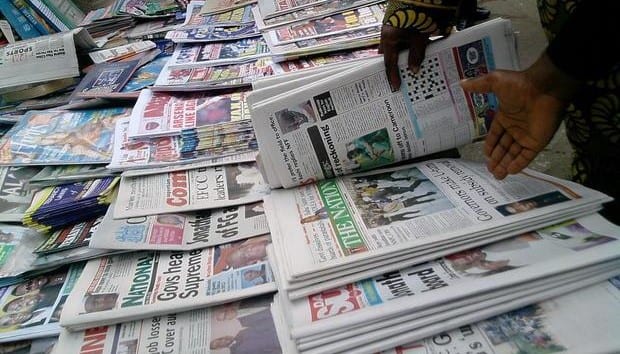
In Vanguard’s Nigerian Newspapers review programme, Today in the News, Vanguard reports that the brewery industry is now facing severe cost pressure as prices of local raw materials rise astronomically undermining their backward integration strategy.
The Vanguard report says industry stakeholders said the cost pressures coming from sorghum, wheat and others would remain elevated, driven by the impact of rising inflation, insecurity across agricultural belts in the country as well as other macroeconomic challenges.
Meanwhile, reports on petrol scarcity in some parts of the country suffuse the frontpages today.
The Punch reports that petrol scarcity is gradually surfacing in Lagos and other parts of the country as private depot owners hike the ex-depot price from n630 to n720 per litre.
The newspaper says the Federal Government has released the sum of n1.23trn to 17 ministries for the implementation of capital projects, as of September 30, 2023.
The Nation reports that the Economic Community Of West African States (ECOWAS) has re-elected President Bola Tinubu as Chairman Of Heads Of State And Government.
The newspaper says the Economic And Financial Crimes Commission (EFCC) has asked Interpol in the three North African countries of Morocco, Tunisia, Algeria to add Yahaya Bello, former governor of Kogi, to their watchlist.
In Today In The News, Daily Trust reports that petrol queues are surfacing in many parts of the country as a result of a sudden disruption in the supply chain by natural factors.
The newspaper says the Federal Government has exempted all electricity companies from payment of withholding tax in the country.
Also in Today In The News, Vanguard reports that the brewery industry is battling the economic challenge of high cost of local raw materials.
The newspaper says the Federal High Court in Lagos has ordered Sadiya Umar Farouq, former Minister Of Humanitarian Affairs, to account for payments of n729 billion to 24.3 million poor Nigerians.
Disclaimer
Comments expressed here do not reflect the opinions of Vanguard newspapers or any employee thereof.